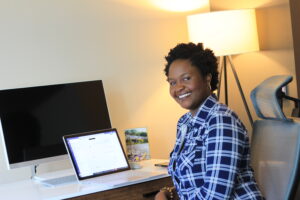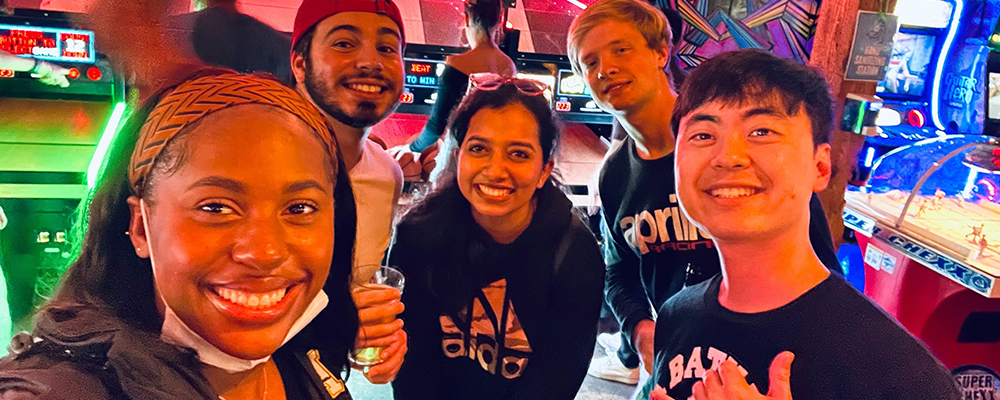Rose Nyameke MSA ‘17 entered the MS in Analytics program at NC State after completing studies in neurobiology at Harvard and working in academic technology. While in college, she did an internship at Microsoft, where she discovered the appeal of using data science as a tool to solve complex problems. Three years later, she is using the skills learned from the Institute to partner with business and engineering teams as a data scientist at the technology giant in Seattle. Rose has volunteered in several alumni activities at the Institute since graduating and shared a few insights on making the most of one’s MSA student experience.
 When did you first learn of data science/analytics and what sparked your interest in building a career in this field?
When did you first learn of data science/analytics and what sparked your interest in building a career in this field?
I first learned about data science after a marketing internship with Microsoft. One of my mentors introduced me to the field, and I realized that it would allow me to explore human behavior and decision-making from a numbers perspective (my bachelor’s degree was in Neurobiology, also driven by a desire to better understand human behavior and decision-making).
Why did you choose NC State’s Institute for Advanced Analytics to continue your studies?
The IAA had the right balance of courses that I was looking for, and I particularly liked the focus on applying concepts learned to real problems instead of a heavy focus on the theoretical. Additionally, job placement was important to me and the IAA’s commitment to placing students in good jobs was a big factor in my school choice.
What was your greatest highlight during your time as an MSA student?
The accessibility and dedication of the instructors and staff. This was very different from my undergraduate experience, and I learned a lot through casual conversations with the instructors.
Dr. LaBarr would let me camp out by his office just so I could listen to the questions others were asking him and learn from them. I have an email pinned to the top of my inbox that highlights the dedication of instructors — Dr. Race sent me an email very early in the morning because I’d cornered her in the bathroom to ask her a question about Cosine and Euclidean distances, and she emailed me because she’d thought of a more complete answer for me after a few days (in her sleep!).
If you had to pinpoint any part of the MSA curriculum that helped prepare you for the workforce, what would it be?
I think the practicum is an obvious answer because it allowed me to move beyond the classroom examples. However, I think every part of the curriculum was equally important in giving me the confidence that I needed to be a successful and versatile data scientist.
What kind of work do you do at Microsoft? How has your work changed during the COVID-19 pandemic?
I work on an Analytics and Inference team at Microsoft — the work that I do evolves with each project, and ranges from data sourcing/engineering to model building depending on project needs. In general, I work with business teams to help inform the decisions they make as they implement programs or measure the success of various initiatives, and I also work with engineering teams to help improve the in-product experience for customers. My work hasn’t changed much during the pandemic, except that I have more meetings since I can’t just turn around and speak to someone.
Alumni involvement is a key part of the MSA student experience. What motivates you to remain involved with the Institute after graduating?
I had a really great learning experience at the Institute and value the work that everyone at the IAA put into making us successful as data scientists. It’s hard to stay away from a place that had such a big hand in shaping my career.
What advice would you give to a prospective student preparing for the MSA program?
The time goes by very quickly — make the best of the resources you have available to you, keep an open mind about your career options and trust in the process. Remember that everyone is on your side and rooting for you to succeed.
Data Column | Institute for Advanced Analytics
The Collaborative Blog for Students in the Master of Science in Analytics
